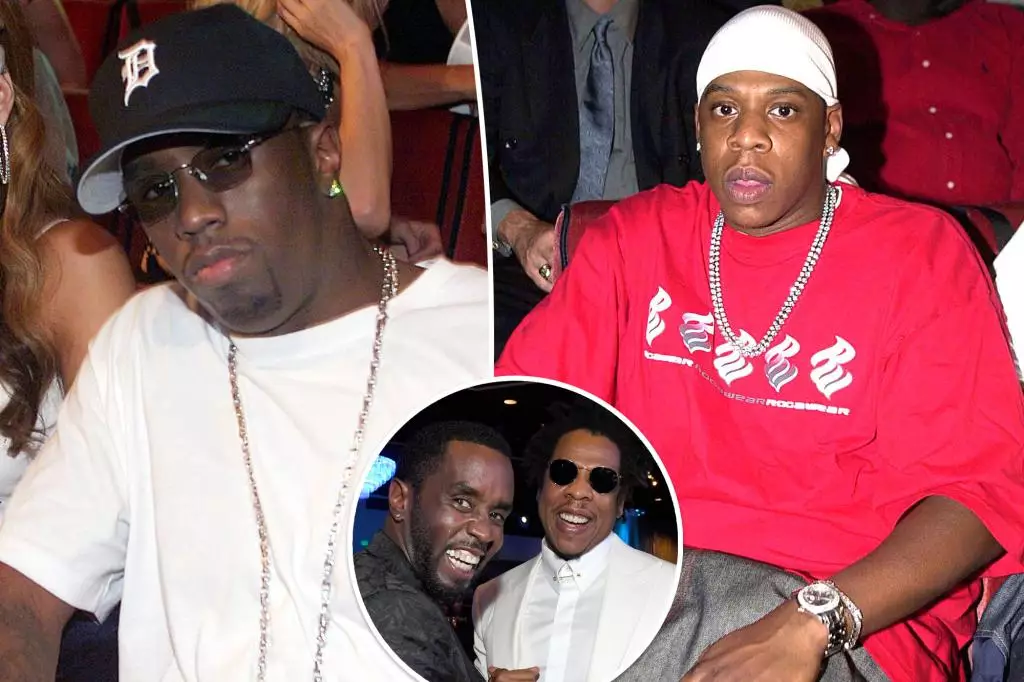Recently, the world of hip-hop has been rocked by serious allegations against two of its most prominent figures, Jay-Z and Sean “Diddy” Combs. The claims stem from an incident that allegedly occurred at an MTV Video Music Awards afterparty in 2000, where both men are accused of raping a 13-year-old girl. The accuser, referred to as Jane Doe, initially filed a lawsuit that only involved Combs but has expanded to include Jay-Z as the case gained traction in the media. These accusations have not only shocked fans but have also stirred conversations about accountability, celebrity culture, and the legal system’s treatment of victims.
The lawsuit was recently re-filed by Texas attorney Tony Buzbee, shedding light on the troubling event that purportedly took place in New York during Jay-Z’s rise to fame. In her statement, the accuser narrates a harrowing account, claiming that she was offered an alcoholic beverage that left her feeling disoriented before being led into a bedroom where the alleged assault occurred. This accusation is particularly alarming not only because of the nature of the crime but also due to the implications of predatory behavior by powerful individuals within the entertainment industry.
In response to these allegations, Jay-Z has vehemently denied any wrongdoing and characterized the claims as “heinous.” In a public statement, he expressed disdain for attorney Buzbee, accusing him of attempting to exploit the situation for personal gain. Jay-Z claimed that the allegations not only invoke a serious crime against a minor but also reflect a broader pattern of manipulation and deceit within legal proceedings.
His declaration emphasizes not only his innocence but also a desire to address the serious nature of the accusations head-on. By framing the allegations as a form of extortion, Jay-Z seeks to shift the narrative away from the accusations to discredit Buzbee and his motives. His remarks highlight a struggle that many high-profile individuals face: the challenge of maintaining one’s name and reputation amidst serious allegations.
A particularly poignant part of Jay-Z’s statement was his expression of concern for his family. He lamented the potential emotional toll that such allegations might have on his children, emphasizing the innocence they should enjoy without being dragged into public scrutiny. This aspect of his response adds a human element, revealing how such allegations can ripple through the family unit, causing distress not only to the accused but also to their loved ones.
In an era where public opinion can swiftly turn on a dime, the effects of legal battles are magnified for celebrities. The emotional burden may extend beyond the courtroom, as family members navigate societal perceptions and the mental strain of ongoing media coverage.
Diddy, for his part, has also responded categorically, maintaining that he has never engaged in any such behavior. His legal team has characterized the accusations as baseless and part of a larger scheme for notoriety, yet the specter of their implications looms large. As Combs awaits trial on separate charges of sex trafficking and racketeering, the intertwined nature of these allegations raises questions about the prevalence of misconduct in the entertainment industry.
One cannot ignore the cultural context that surrounds these accusations. The Me Too movement has amplified the voices of victims and encouraged more individuals to come forward, prompting a critical examination of power dynamics within the entertainment and celebrity spheres. Jay-Z’s and Diddy’s cases serve as essential reminders of the importance of listening to victims and addressing issues surrounding consent, power, and accountability—especially when those accused wield significant influence.
As these developments continue to unfold, both the media and public will closely watch how the legal system addresses these serious allegations. The case not only emphasizes the urgent need to protect victims and thoroughly investigate claims of misconduct but also challenges societal views about celebrities. How society balances the narratives of power, reputation, and justice remains a critical examination point.
The allegations against Jay-Z and Diddy, whether proven or disproven, catalyze dialogue about the responsibilities of those in positions of power and the need for systemic changes to ensure the safety and dignity of all individuals, regardless of age or status. In a world still grappling with the repercussions of past abuses, the case serves as a stark reminder of the importance of accountability and justice for victims of sexual violence.

